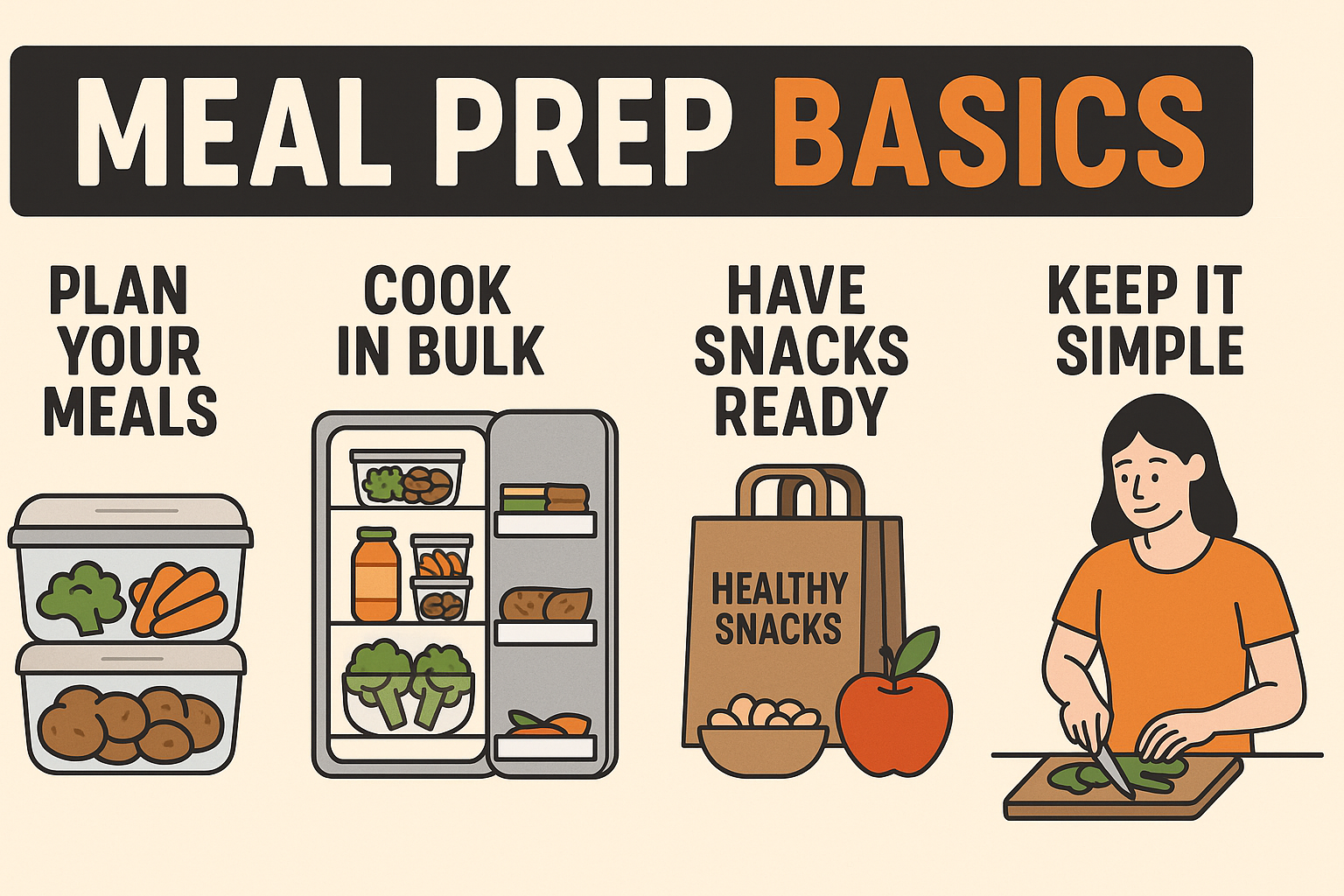
Meal Prep Basics
Why Meal Prep Matters
Meal prepping is one of the most powerful tools for achieving lasting success in your nutrition and fitness goals. Without it, you’re left at the mercy of fast food, vending machines, or whatever happens to be in your pantry when hunger strikes. When you take time to prepare meals in advance, you set up a nutritional safety net that prevents poor decisions.
Think of it like this: the easiest food to grab is what you’re going to eat. So why not make that food healthy, balanced, and aligned with your Six Week Metabolic Reset?
Step 1: Planning Your Meals
Start by mapping out your week. How many meals will you need each day? How many snacks? Consider your schedule, your activity level, and any social events. Build your grocery list around protein sources (chicken, turkey, fish, tofu), complex carbs (brown rice, sweet potatoes, quinoa), and healthy fats (avocado, nuts, olive oil).
Aim for variety to avoid boredom. Rotate proteins, switch up vegetables, and experiment with spices and herbs for flavor without extra calories.
Step 2: Batch Cooking & Portioning
Dedicate one or two days per week to batch cook. Roast multiple trays of vegetables, bake or grill proteins in bulk, and prepare large portions of whole grains. Use portion containers to divide meals for easy grab-and-go access. Label containers with dates to keep your fridge organized.
If you’re short on time, appliances like a slow cooker or Instant Pot can cook large quantities with minimal effort.
Step 3: Smart Snacking
Snacks are often where diets go off the rails. To avoid this, prepare healthy options ahead of time: boiled eggs, Greek yogurt cups, mixed nuts (pre-portioned into snack bags), sliced veggies with hummus, or protein shakes. Keep them visible and easy to access.
Pro tip: store snacks at eye level in your fridge and pantry to make healthy options the obvious choice.
Storage Tips for Freshness
Use airtight containers to extend shelf life. Glass containers are ideal because they don’t stain or hold odors, and they’re microwave safe. Freeze portions you won’t use within 3 days to avoid waste. Rotate frozen meals weekly to keep your menu interesting.
Stay Flexible and Creative
Meal prepping doesn’t mean eating the same bland chicken and broccoli every day. Mix up sauces, try different cooking methods, and swap ingredients to keep things exciting. Meal prep is a framework, not a prison.
If a week gets unexpectedly busy, your prep work will keep you from grabbing fast food. If plans change, simply freeze unused portions for later. Flexibility is key.
The Psychological Edge
Knowing that your meals are ready reduces decision fatigue. You’re not stuck wondering “what’s for dinner?” every day. This mental relief allows you to stay consistent, which is where real progress happens.
Plus, seeing your fridge stocked with healthy, portioned meals reinforces a sense of control and accomplishment.
Your Next Steps
Commit to trying meal prep for just one week. Keep it simple. Focus on basics like baked chicken, roasted veggies, and brown rice. As you gain confidence, expand your menu with new recipes and snack ideas.
Remember, you’re not just preparing food—you’re preparing for success.